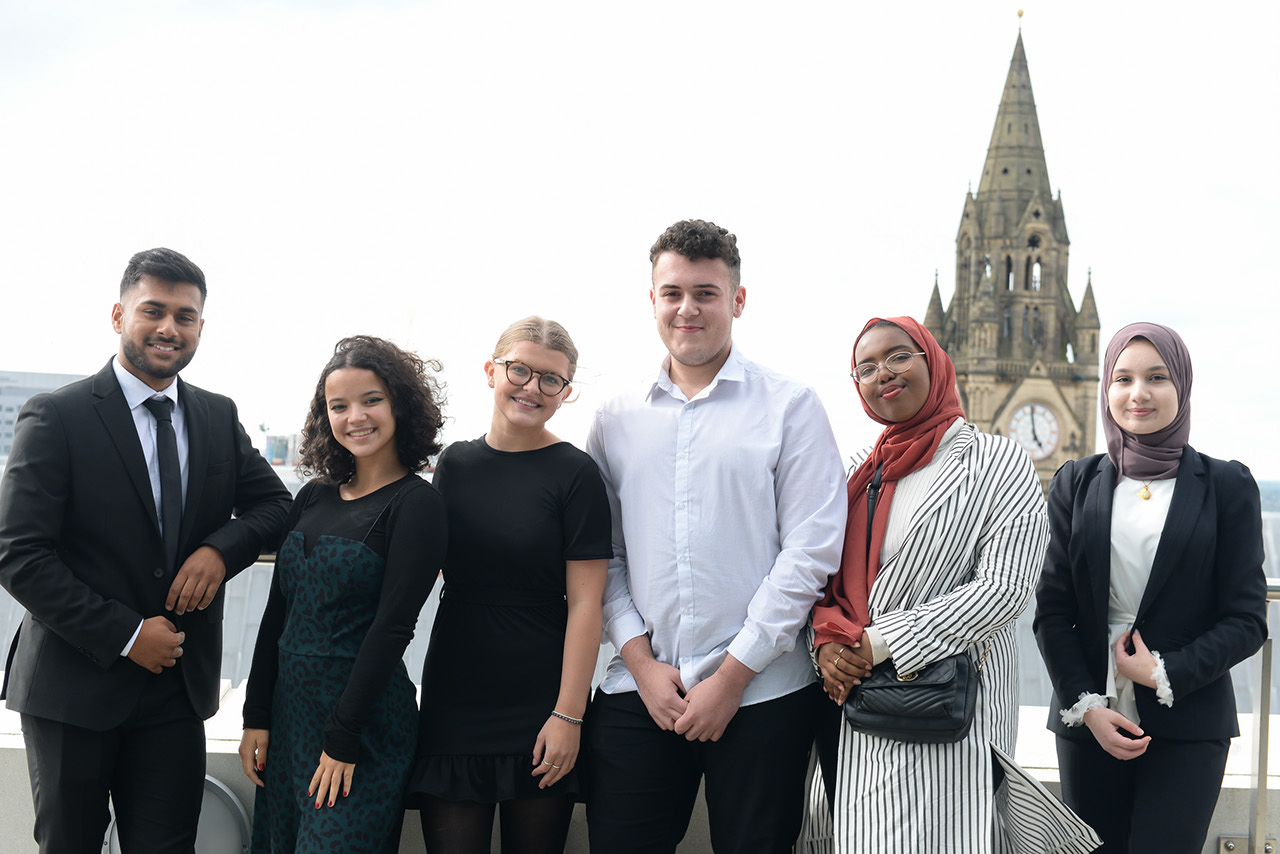The EY Foundation is a charitable company registered in England and Wales and Scotland with registered charity number 1157154 and SC045076. It is also a member firm of Ernst & Young Global Limited

Download our new report showcasing how fostering more internal forms of motivation can help young people from a low socioeconomic background to thrive better in a jobs market being transformed by AI.
As AI rapidly transforms workplaces, there is an urgent need – and golden opportunity – to steer it towards greater opportunity, not deeper inequality. According to research by Institute for the Future of Work, better technical skills and ‘AI literacy’ alone will not be enough for young people from low-income backgrounds to thrive. Intrinsic motivation and self-agency are becoming increasingly important for young people to adapt and succeed in this fast-evolving and technologising labour market.
It is human-centric skills such as critical thinking, communication, creativity, and problem-solving that flourish when young people have intrinsic and internal forms of motivation – when they engage in learning and work for inherent satisfaction rather than external rewards alone.
While the findings indicate that many young people exhibit strong intrinsic or internal motivation linked to their values and identity, the research also reveals if young people are lacking this, it can hold them back from building fulfilling careers.
Yet the evidence indicates that while young children generally start with similar levels of intrinsic motivation, it often erodes more quickly over time for children from low-income backgrounds. This is a critical insight because this group of young people are more likely to feel excluded from new learning opportunities, such as those presented by AI. As a result, there is a real risk that – without intervention – the rapid adoption of AI could further entrench existing inequalities. Encouragingly though, the research also suggests that intrinsic motivation can be cultivated through targeted support.
EY Foundation CEO, Lynne Peabody said:
The young people we support are from low-income backgrounds and they often talk about work opportunities not being ‘for someone like me’. The identification of intrinsic motivation brings deeper understanding to this issue, with young people from a low-income background often growing up with fewer choices and receiving less support. To ensure employers access the incredible talent of young people at risk of being excluded from the labour market, we must act now to rebuild internal forms of motivation.
On the potential for young people to develop intrinsic motivation, Anna Thomas MBE, Founding Director at IFOW, said:
This research shows huge promise, with our initial work showing that a carefully designed intervention focused on motivation can dramatically improve the work outcomes for young people from low-income backgrounds. We believe our Good Work Motivation Cycle (GWMC) model is an important first step towards delivering this, and are excited to begin to test its effectiveness with young people.
Helene Dearn OBE, Executive Director for Employment, Skills, Health and Communities at West Midlands Combined Authority said:
In the West Midlands around 1 in 7 young people are now not in education, employment, or training. Whilst there are a range of factors affecting young people, with the uncertain impact of AI, there is a risk that these numbers will increase. As one of the pilot regions for the Youth Guarantee Trailblazer, the West Midlands is well placed to explore new solutions. This research and the link between motivation and succeeding in the workplace could help us to better understand the type of support our young people need to better succeed in the world of work, and we look forward to the next stage of this research with interest.
The next stage of this research will focus on testing the implementation of the GWMC model across EY Foundation programmes and with key stakeholders.


